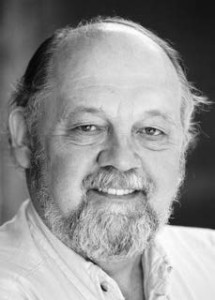|
Caledon Citizen https://caledoncitizen.com/national-affairs-by-claire-hoy-its-better-than-all-the-others/ Export date: Tue Jun 24 3:44:36 2025 / +0000 GMT |
National Affairs by Claire Hoy — It’s better than all the othersMid-way through the recent federal election campaign, Justin Trudeau said that “every single promise that we have made has been fully costed . . . (we have been) crystal clear . . .” Not so much, as it turns out. It seems the oft-repeated claim that “taxing the rich” would pay for the promised extravagance was so off the mark that, wonder of wonders, even the Liberals now admit it was bogus — which, by the way, is what the two other parties said all along. Thing is, however, Trudeau's successful election to 24 Sussex Drive actually had little, if anything, to do with whether the electors bought into any and/or all of the 300-plus promises the party made while running in the campaign. The reason Trudeau won — and NDP Leader Thomas Mulcair was smoked — was that a huge segment of the electorate simply wanted to get rid of Stephen Harper. Going into the campaign, the NDP were actually ahead of the Liberals in the polls, but as things progressed, Trudeau out-campaigned his rivals and ended up with a majority government, garnering just less than 40 per cent of the vote. Fair enough. To the winners the spoils, and all that stuff. Also the inevitable headaches once the euphoria of a new sheriff in town wears thin — and it will. Very few election campaigns are actually fought over a single vital issue. Perhaps the closest we've come to that in recent memory was the Brian Mulroney versus John Turner fight over free trade — with Mulroney pushing it and Turner rejecting it. Usually, however, there are many other factors at play. When Harper won his first minority, for example, people were sick to death of the Liberals and wanted to give somebody else a chance. So they did. Same thing back in the late 1970s when the electorate had grown to despise Pierre Trudeau, Justin's father, a decade after he, too, enjoyed a pop star-like elevation to the office. People were so upset with Trudeau that they actually elected Joe Clark, of all people. Clark quickly proved he wasn't up to the job when he tried to push a controversial budget through a minority parliament and lost. But there you are. All of this brings us to Trudeau's announced intentions to follow up on his campaign pledge — one of many he apparently doesn't intend to break — that the 2015 election will be the last one we have under our historic first-past-the-post system. Support for electoral “reform” grew under the Harper years, of course, because activists from the other camps were ticked that Harper got to have his way in Ottawa with just about 40 per cent of the vote, about the same that Trudeau got to build an even stronger majority. The argument goes that it is unfair to electors of losing candidates that their votes don't count once the winner is announced. I have always felt this attitude displays a basic misunderstanding — likely deliberately so in most cases — of how our system works. My own riding, for example, saw a Liberal boot out the NDP incumbent. I didn't vote for either guy, but that doesn't mean that the new guy doesn't represent me in Parliament in exactly the same way he represents, not just those who voted for him, but everybody who lives in our riding. That's the way it works. Our current system has worked exceedingly well over the years. We don't need any so-called “reform.” As already stated, voters wanted change and, thanks to our system, they got it. The system delivered. So why change it? I'll tell you why. There are a host of other proposed systems — all of which the Liberals have promised to study in their public “consultations” (an odd choice of words, since they have no intention of consulting anybody over maintaining the current system, even though three provincial referenda on that system have seen it win out easily over the suggested alternatives.) The “advantage” of all these other systems is that they inevitably lead to minority governments. What that means, of course, is that the lesser parties get far more power to sway government than the electorate meant to give them, i.e. they are all less democratic than our current system. It may not be perfect, but it's better than all the others. But if Trudeau does want to act on this promise — while shelving many others — he should at least ask the public in a binding vote and be prepared to live with the results. Changing our historic voting system is not something that belongs to one political party or another. It belongs to everybody. And as such, everybody should get their say. Anything less would be a slap in the face at democracy and make a mockery of Trudeau's so-called “sunny ways.” 
|
|
Post date: 2015-12-20 15:37:07 Post date GMT: 2015-12-20 20:37:07 Post modified date: 2015-12-20 15:37:07 Post modified date GMT: 2015-12-20 20:37:07 |
|
Export date: Tue Jun 24 3:44:36 2025 / +0000 GMT This page was exported from Caledon Citizen [ https://caledoncitizen.com ] Export of Post and Page has been powered by [ Universal Post Manager ] plugin from www.ProfProjects.com |